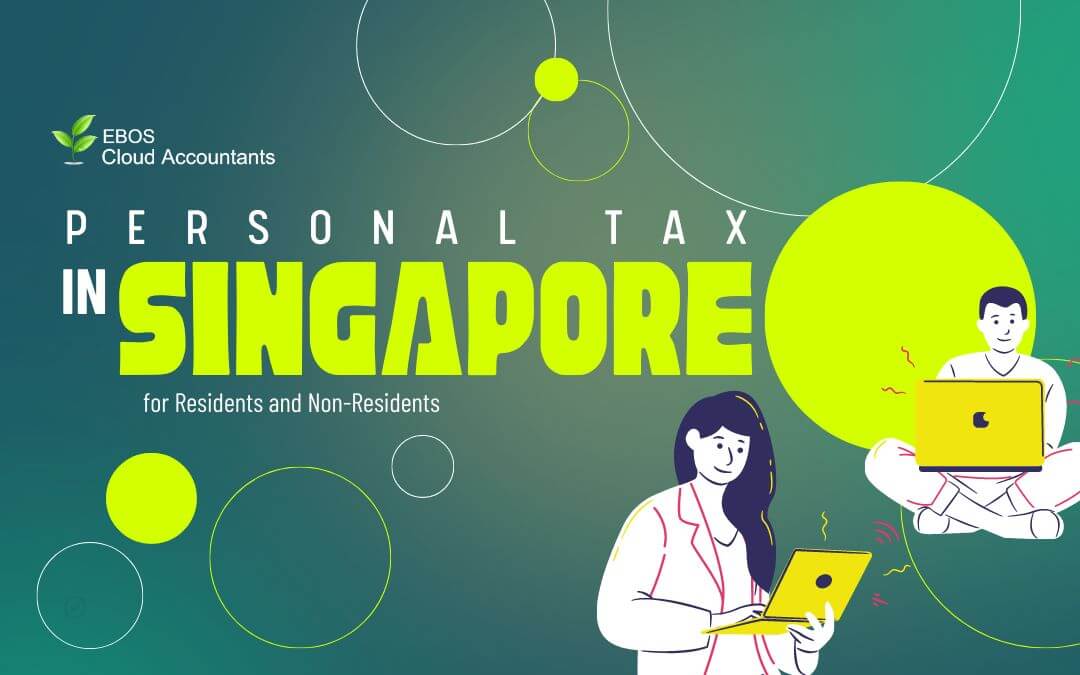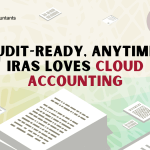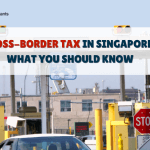High-income earners prefer Singapore because it has some of the lowest individual tax rates in the world. In this blog, we will talk about the most important aspects of personal taxes in Singapore, such as tax residence, tax rates, and taxes on foreign income.
Key Facts About Personal Taxes
- Residents of Singapore are subject to a progressive tax rate ranging from 0% to 22%.
- Residents who do not pay taxes pay taxes at a rate that ranges from 15% to 22%.
- Capital gains, dividends, and inheritance are all tax-free.
- Foreign-sourced income is exempt from Singaporean taxes, with a few exceptions.
Tax Residency and Tax Rates
A certain amount of tax may be due depending on the person’s tax residency status. In Singapore, the following individuals are considered to be tax residents of the country:
- Singapore citizens
- Singapore permanent residents
- Any foreigner who has worked or stayed in Singapore for 183 days or more
Tax rates for Singapore Tax Residents
Residents pay taxes at a progressive rate that ranges from 0% to 22%. The current tax rates for individuals in various income groups are shown in the table below: For Singapore residents who earn more than S$500,000 annually, the top marginal personal income tax rate will increase beginning with the 2024 tax year.
| Taxable Income | Income tax rate |
| First S$20,000 | 0% |
| Next S$10,000 (up to S$30,000) | 2% |
| Next S$10,000 (up to S$40,000) | 3.5% |
| Next S$40,000 (up to S$80,000 | 7% |
| Next S$40,000 (up to S$120,000) | 11.5% |
| Next S$40,000 (up to S$160,000) | 15% |
| Next S$40,000 (up to S$200,000) | 18% |
| Next S$40,000 (up to S$240,000) | 19% |
| Next S$40,000 (up to S$280,000) | 19.5% |
| Next S$40,000 (up to S$320,000) | 20% |
| Above S$320,000 | 22% |
Non-resident status
A non-resident is an individual who has stayed or worked in Singapore for under 183 days. Non-residents must pay taxes at the following rates:
Non-Resident Tax Rate
| Number of days in Singapore | Tax rate |
| 60 days or fewer | 0% |
| 61-182 days | Flat rate of 15% OR A progressive tax rate capped at 22%-whichever results in a higher amount |
Even if the person has only been in Singapore for a short period—less than 60 days—certain sorts of non-resident income are taxed at a rate ranging from 15% to 22%. “Non-exempt income” refers to the following categories of income:
Tax Rates For Non-Exempt Income Tax on Foreign Income
Income derived from employment outside of Singapore is often not subject to taxation. This includes money that has been deposited into a bank account in Singapore. Additionally, it is not necessary to declare income that is eligible for foreign sources.
However, foreign income is taxed under the following conditions:
- Employment in Singapore is ancillary to an international job. This indicates that although the role is headquartered in Singapore, it needs the employee to work and travel outside of Singapore.
- The person is an employee of a foreign company in Singapore.
- The money came in via a partnership in Singapore (unless the income qualifies for exemption)
- Although employed by the Singaporean government, the person earned the money elsewhere.
- The person received compensation in Singapore for expert, technical, consulting, or other services rendered in a foreign location that did not meet the criteria for a fixed place of operation. These cover areas that are briefly used or that are used for auxiliary and antecedent operations to the primary service.
Conclusion:
The tax system in Singapore is simple and effective, with residents subject to a progressive income tax rate and non-residents to a flat rate. For the majority of the goods and services that are used domestically, the nation also levies GST. The advantageous tax system can help people and companies who are thinking about establishing businesses in Singapore.







